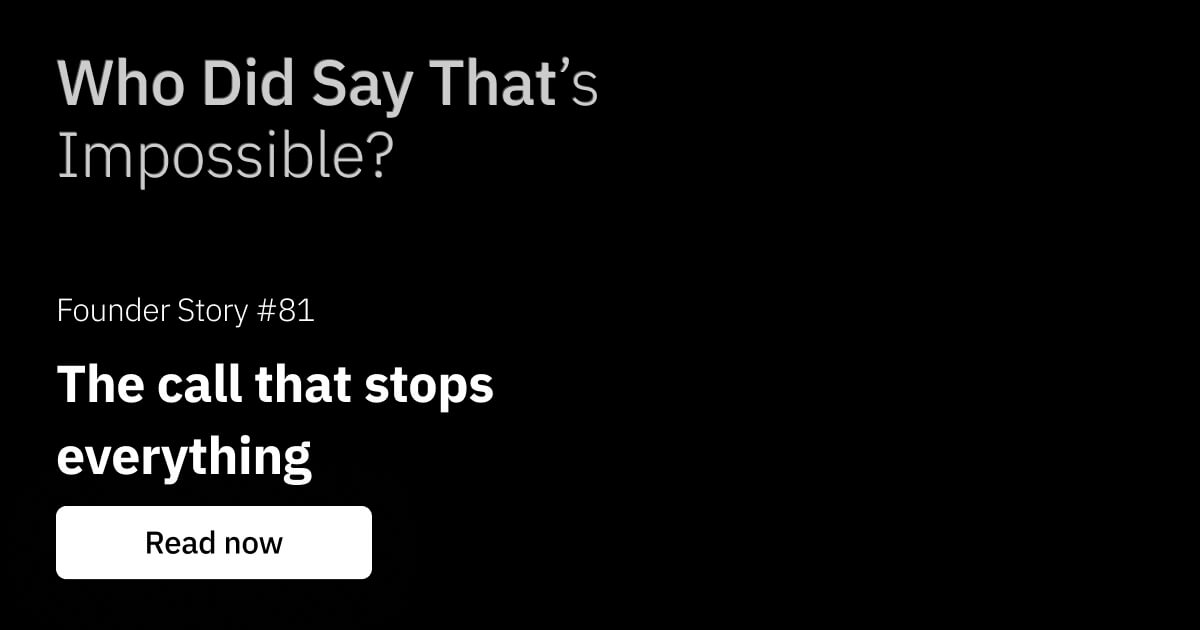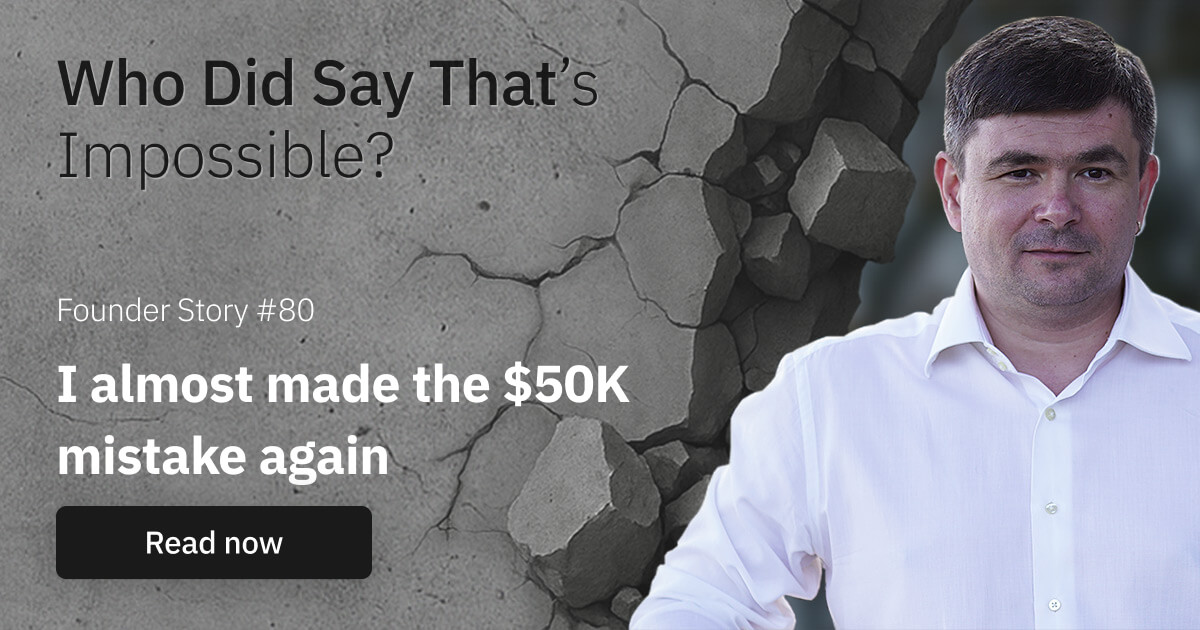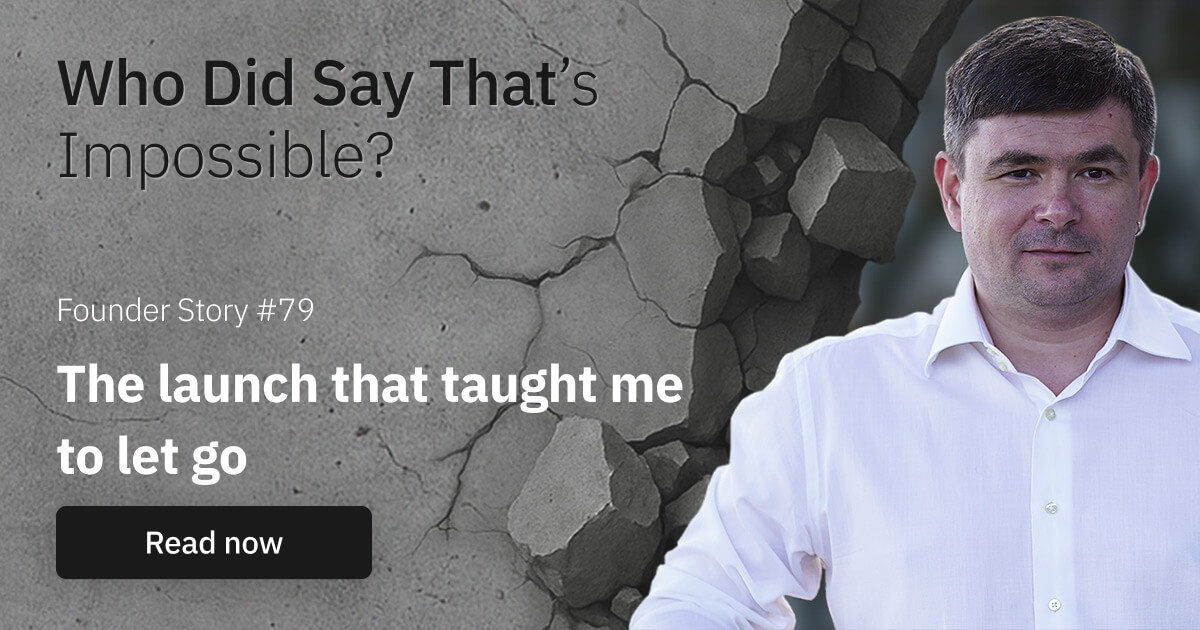Why more tools won't save your business
Or minute of collecting shiny objects and losing control
Every founder has felt that itch.
A process breaks, something slows down, and you think: We just need a better tool.
A new CRM to track everything.
A better project manager to "finally get organized."
A new AI toy to make work faster.
It feels like progress. Like you're "solving" the problem.
But in reality you're just adding another layer of noise to an already overloaded system.
The hidden tax of complexity
I remember the early days of my agency. We didn’t have many tools — we barely had money to pay for them. Every decision about tech felt existential.
But as we grew, the shiny objects multiplied.
Someone suggested a new analytics dashboard.
A designer wanted a different feedback tool.
Marketing needed yet another automation platform.
Finance pushed for a new billing system.
I said yes. Over and over.
Because saying yes felt like supporting the team. It felt like leadership.
But underneath, our stack became a Frankenstein monster: bloated, slow, fragile.
One day, an urgent payment didn’t go through.
We lost a client because the right document was buried in some abandoned folder no one used.
I discovered former contractors still had access to core systems — a huge security hole waiting to explode.
The biggest shock wasn’t even the financial impact. It was the realization that I had no idea how half of these systems actually worked together.
I thought I was building an efficient, modern operation.
Instead, I built a puzzle only I could "sort of" solv, if I stayed online 24/7 and kept holding all the threads in my head.
The real reason we keep adding tools
Looking back, I see it clearly now: every new tool was a distraction.
A way to avoid asking harder questions:
- Where is our process actually broken?
- What should be simplified, not automated?
- Who owns this workflow — and who will maintain it?
Adding tools is easier than facing these questions. It feels tactical, immediate, and "productive."
But in reality, every new tool is a commitment.
A potential point of failure.
A security risk.
A silent drain on your mental energy and your budget.
People love to say, "Simple is hard." And they’re right.
It’s easy to say yes to another SaaS subscription.
It’s easy to pay $29/month for another widget that "might help."
It’s much harder to stop, audit, and ask:
- What can we remove?
- What is truly essential?
- What do we actually understand and control?
The best operators I know aren’t proud of how many tools they stack.
They’re proud of how few they need.
Because simplicity isn’t just elegant.
It’s resilient. It’s secure. It’s liberating.
Every tool you adopt in a hurry is tech debt in disguise.
Every integration becomes a liability when you don’t fully understand it.
Every piece of automation is a potential silent failure waiting to blow up when you least expect it.
I’ve seen founders bury themselves under tech stacks they can’t maintain.
They spend more time managing the tools than managing their teams or clients.
They pay subscription invoices they don’t even recognize anymore.
They think they’re buying leverage.
But what they’re really buying is complexity and paying for it with freedom.
I wish someone had told me: "You don’t need more tools. You need one strong system that actually works."
When you have clarity, you understnad most tools aren’t saving you time.
They’re stealing it.
When you design a simple, well-integrated stack, you don’t just improve operations.
You reclaim your focus, your energy, your leadership.
Disclaimer.
Every business has its nuances, and every founder has their unique context and resources. Whether or not my advice applies depends on your situation, experience, and needs. But one thing is universal—use your brain.
Think about how to apply the advice in your context before acting.
Your way.
- Eugene
Join the “most offbeat” Businessletter on entrepreneurship.

Hi, I’m Eugene.
20 years later — 80 people, 3 continents, 7-figure revenue.
But for many years, I was the bottleneck in my own business.
Now I help founders escape the same trap. Through systems that actually work, not theory.
I write weekly: operational war stories, decision systems, and lessons learned the hard way.
For founders who want to build without burning out.
More Stories
Founder Stories

The call that stops everything
Or minute of realizing your business isn't ready for this

I almost made the $50K mistake again
Or minute of catching myself repeating a dangerous pattern


